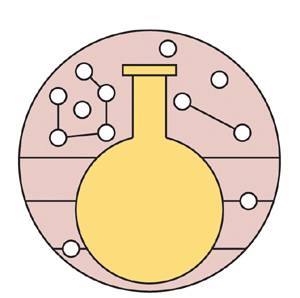
I'm not religious, but – aside from feeling strangely proud when I was once branded a “born-again heathen” – I've never considered this to be a core part of my identity. I hadn't given humanism any thought until recently, when I heard Caspar Melville speak at an event. I soon found myself reading the 1933, 1973 and 2003 humanist manifestos online with growing excitement.
I say with excitement because I was immediately struck by the remarkable synergy between humanism and the pursuit of an ideal to which I am deeply devoted: sustainability. In what follows I aim to set out what “sustainability” means, why it is such an essential and elusive goal for society, and why humanism could help us attain it.
In essence, sustainability is about meeting the needs of everyone on Earth without compromising the ability of future generations to meet their own needs. Today we’re nowhere near achieving this goal. For decades we've been placing far too great a burden on the “ecosystem services” upon which we as a species depend – fertile soil, fresh water, clean air and so on – and the quarter of a million people born every day only increase the pressure.
Take climate change: all major world leaders have acknowledged the need to keep global temperature increases below two degrees Celsius relative to pre-industrial times. Fail to stay within this range, and the result will make our two world wars seem like a picnic. But today’s best science tells us that at the rate we’re burning fossil fuels now, we’re on a trajectory to breaching that limit in fewer than twenty years. You would think this would spur an unprecedented global response, but no country has yet taken action on anything like the scale required.
How on Earth have we become locked into behaviours that are so clearly jeopardising our own future? Unfortunately our global economic system is founded on three assumptions that are as flawed as they are entrenched. They can be traced back as far as 1776 – long enough to have become accepted by many as truisms – when Adam Smith’s The Wealth of Nations set out a theory for how markets work.
The first assumption is that infinite growth is both possible and desirable. Since we live on a finite planet, the fallacy of this will likely seem obvious to any rational reader today. In 2009, a group of scientists led by the Stockholm Resilience Center proposed a set of nine “planetary boundaries” which collectively define a safe operating space for humanity, and concluded that we've already crossed three of them.
The second assumption is that producers and consumers always behave rationally. If that’s the case then how did a single bluefin tuna (pictured)– a species on the brink of extinction – recently sell for 1.8 million US dollars? This is a classic example of the “tragedy of the commons”: depletion of a shared resource by individuals (in this case fisherman) each acting according to their own self-interest. Such behaviour is dubbed “bounded rationality” by systems theorists. It certainly isn't the kind of rationality we need if we’re to retreat from those planetary boundaries.
The third assumption is the notion that consumption – usually framed as GDP – is an appropriate measure of prosperity. The media and governments are obsessed with this metric, but as long ago as 1968 it was questioned by US presidential candidate Robert Kennedy, who said that GDP “measures neither our wit nor our courage, neither our wisdom nor our learning... it measures everything, in short, except that which makes life worthwhile.”
These three, centuries-old assumptions are so entrenched that it’s extremely hard to overcome them. As citizens, those of us in positions of influence – CEOs and investors, for example – may well “get” the problem, but as participants in a broken system we struggle to do anything but make it worse.
So where do we start? A clue lies in an oft-cited quote by the famous humanist Albert Einstein: we can’t solve problems by using the same kind of thinking we used when we created them. The sustainability debate is awash with data and opinion, but what has been sorely lacking is a truly new way of thinking.
I suggest that humanism could meet this need, for it embodies three tenets in perfect alignment with sustainability: first, humanity is inextricably linked to and dependent upon the natural world; second, science is the basis upon which all decisions must be made; and third, what is right for humanity and what is right for the individual are highly interdependent. Does this not feel like a worthy set of “replacement assumptions” upon which to restructure our economy?
As a species we may be up the proverbial creek, but perhaps humanism – and humanists – could yet provide the means for us to paddle our way out.

